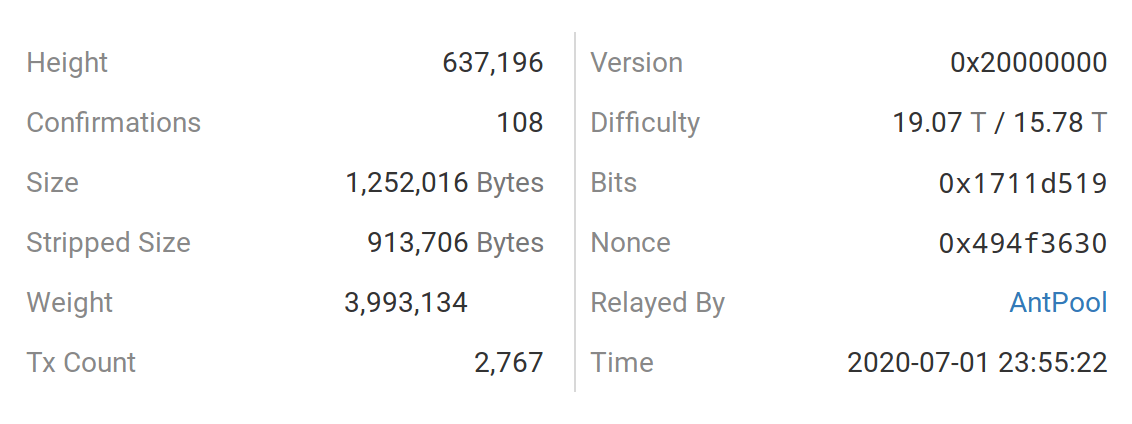Bitcoin Block Hash As a Random Number
Jul 02, 2020Yesterday I announced a simple tournament to credit my followers with some cryptos, they need to favorite my status updates and the next day I will pick the winner by the last Bitcoin block hash before 12:00 midnight. Lots of people joined but still not many enough to match that large hash number, so I need to do a basic modulo operation.

The qualified Bitcoin block is 637196 according to the rules, so I need to manipulate its hash. Golang is my primary language recently, it’s a shame that no direct native big number support in Golang, so I made this computation by a few lines of Go code.
hash := "0000000000000000000ec2e8aee4ab4141e13edff2bf20482ebd82b18baaef9a"
num, ok := new(big.Int).SetString(hash, 16)
if !ok {
panic("no way!")
}
mod := new(big.Int).Mod(num, big.NewInt(256))
fmt.Println(mod.Int64())
=> 154
Then I wonder what is a better way to do this without writing any code.
JavaScript in Firefox Console gives out incorrect result, expected.
0x0000000000000000000ec2e8aee4ab4141e13edff2bf20482ebd82b18baaef9a%256
=> 0
Bash is savage!
echo $((0x0000000000000000000ec2e8aee4ab4141e13edff2bf20482ebd82b18baaef9a%256))
=> 154
Ruby irb is always good at script and numbers.
0x0000000000000000000ec2e8aee4ab4141e13edff2bf20482ebd82b18baaef9a%256
=> 154
Python will never disappoint me on number operations neither.
0x0000000000000000000ec2e8aee4ab4141e13edff2bf20482ebd82b18baaef9a%256
=> 154
All I need to do is send some cryptos to the 154th person in this huge list.
